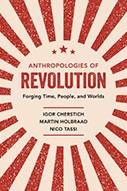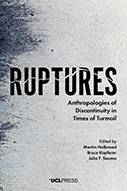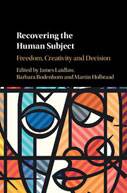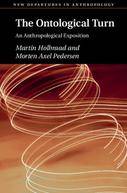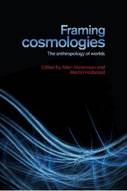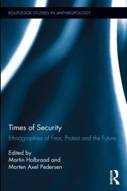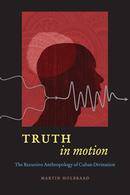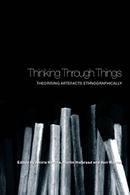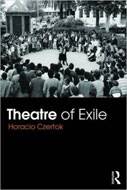Professor of Social Anthropology, Head of Department (2019-2022)
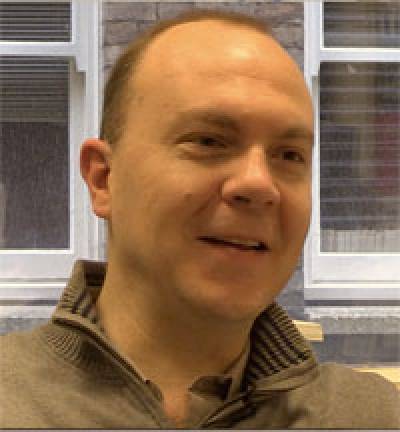 | Tel: +44 (0)20 7679 8639 |
Video and audio clips of interviews and presentations
GENERAL INTERESTS
Martin Holbraad's main field research is in Cuba, where he focuses on Afro-Cuban religions and revolutionary politics. Having completed in 2002 his doctoral thesis on the role of oracles and money within the diviner cult of Ifà in socialist Cuba, his research since has focused on such topics as the relationship between myth and action, the consecration of objects, and, more broadly, the relationship between cosmology, politics and other forms of social invention. These ethnographic interests inform his theoretical concerns with such topics as the anthropology of truth and the imagination, abstraction and divinity, and the relationship between anthropological conceptualization and art. In UCL Anthropology he is Chair of the Research Committee, and has been Tutor of the MSc in Social and Cultural Anthropology (2011-13), Head of the Social Anthropology Section (2011-14) and Vice-Dean for Interdisciplnarity in UCL's Faculty of Social and Historical Sciences (2013-14).
CURRENT RESEARCH
Martin Holbraad is the author of Truth in Motion: The Recursive Anthropology of Cuban Divination (Chicago, 2012), which is an attempt to experiment with the conceptualization of truth in divination and in anthropology, and co-author of The Ontological Turn: An Anthropological Exposition (Cambridge, 2016), which seeks to elucidate the recent emergence of the so-called 'ontological turn' as a distinctive anthropological orientation, articulating its core tenets and methodological implications, and exploring its influence in contemporary anthropological research. He is co-editor of a volume on the role of artefacts in anthropological thinking, called Thinking Through Things: Theorising Artefacts Ethnographically (Routledge, 2007), a special issue of the journal Ethnos titled Technologies of the Imagination (2009), a volume on the anthropology of security titled Times of Security: Ethnographies of Fear, Protest and the Future (Routledge, 2013), stemming from inter-disciplinary research with political scientists at the Centre for Advanced Security Theory in Copenhagen University since 2009, and a volume on the contemporary relevance of the anthropological study of cosmology, titled Framing Cosmologies: The Anthropology of Worlds (Manchester, 2014), which emerged out of his work as co-organiser of the Cosmology, Religion, Ontology and Culture Reading and Research Group at UCL (CROC). Since 2016, Holbraad has been Editor of the international anthropological journal Social Analysis.
In 2014-19 Holbraad led Comparative Anthropologies of Revolutionary Politics (CARP), a team project funded by a Consolidator Grant of the European Research Council. Based on a selection of ethnographic studies in countries of the Middle East and Latin America, the project brought an anthropological examination of the relationship between revolutionary and religious practices to bear on existing conceptions of revolution, statecraft, and subjectivity in political theory, developing the comparative study of revolutions as a major new departure for anthropological research. Among a series of publications and events, CARP has produced Ruptures: Anthropologies of Discontinuity in Times of Turmoil (UCL, 2019), Anthropologies of Revolution: Forging Time, People and Worlds (forthcoming with University of California Press), and the exhibition Morphologies of Invisible Agents, developed with the Social Morphologies Research Unit.
TEACHING
Martin Holbraad teaches courses in ethnography and anthropological theory at undergraduate and Masters' level. In recent years these have included courses on Alterity and Experiment in Anthropological Thinking; Cosmos, Society and the Political Imagination (co-taught with Allen Abramson and Bruce Kapferer); and The Social Forms of Revolution (co-taught with Igor Cherstich and Nico Tassi).
RESEARCH STUDENTS
Martin Holbraad helps run the Reading and Research Groups programme at UCL Anthropology.
He is first supervisor of the following Doctoral students:
- Dmitri Prieto Samsonov, (2017, Post-Revolutionary dynamics of freedom and constraint in Isla de la Juventud, Cuba, Wenner Gren)
- Alonso Rodrigo Zamora Corona (2016, ritual and timekeeping among the K'iche' Maya, CONACYT)
- Narges Ansari (2013, agency, morality and discipleship in Iran)
- Kaya Uzel (2013, performing cosmologies: alterity, participatory art, and the politics of foreign aid in Burkina Faso, ESRC/AHRC)
- Daniel Sherer (2011, theatrical work and the American Dream, ESRC)
He is co-supervisor to:
Hermione Spriggs (2018, traps and art, ESRC)
He is second supervisor to:
- Johanna Perez Gomez (2015, paramilitary violence and witchcraft in Colombia, ESRC)
- Razvan Dumitru (2006, regulating markets in Moldova, Marie Curie)
Completed Doctoral Students:
- Charlotte Al-Khalili (Of Revolutionary Transformations: Life in Displacement at the Syrian-Turkish Border, ERC, awarded 2019)
- Viorel Anastasoaie (Growing plants and domesticating the Revolution: tobacco, the revolutionary state, and the micro-politics of value in a community of tobacco-producers in western Cuba, Marie Curie, awarded 2019)
- Myriam Lamrani (From the Saints to the State: Modes of Intimate Devotion to Saintly Images in Oaxaca, Mexico, ERC, awarded 2019)
- Kelly Fagan Robinson (Looking to listen: individual 'turns' in deaf space and the worlds they conjure, ESRC/AHRC, awarded 2018)
- Tobia Farnetti (The blur of modernity: essentialism, affect and everyday life in Tokyo, ESRC, awarded 2018)
- Joseph Bristley (Animal economics: livestock, pastoralism and capitalism in post-socialist Mongolia, ESRC, awarded 2017)
- Ana Carolina Barreto Balthazar (The character of things: materiality and belonging in Margate, UK, awarded 2016).
- David Cooper (Productive dilemmas: assistance and struggle in a Nicaraguan cooperative, awarded 2015)
- Babis Kontarakis (Muslims possessed: spirit possession and Islam in Cairo, awarded 2015)
- Timothy Carroll (Becoming Orthodox: of people and things in the making of religious subjects, awarded 2015)
- Alessandra Basso Ortíz (d.2014) (Performing ethics: Will, perspective and action of Afro-Cuban religions, AHRC - parts of PhD published posthumously)
- Vita Peacock (We, the Max Planck Society: A study of hierarchy in Germany, AHRC, awarded 2013)
- Julia Sauma (The deep and the Erepecuru: Tracing transgressions in an Amazonian Quilombola territory, ESRC, awarded 2013)
- Matan Shapiro (Invisibility as ethics: affect, play and intimacy in Maranhão, Northeast Brazil, Wenner Gren, awarded 2013)
- Piergiorgio di Giminiani (Ancestral lands, modern transactions: land restoration among the Mapuche in Chile, awarded 2011)
- Damon Dennis (Writing, numbers and material culture in Morocco, awarded 2010)
- Marjorie Murrey (Madrid: the material culture of city life, Chilean State Scholarship, awarded 2009)
- Sergio Gonzalez Varela (Power, symbolism, and play in Afro-Brazilian Capoeira, CONACYT, awarded 2009)
- Diana Espirito Santo (Developing the dead: The nature of knowledge, mediumship and self in Cuban espiritismo, ESRC, awarded 2009)
- Anna Cristina Pertierra (Battles. Inventions and acquisitions: The struggle for consumption in urban Cuba, ORS, awarded 2006)
 Close
Close


